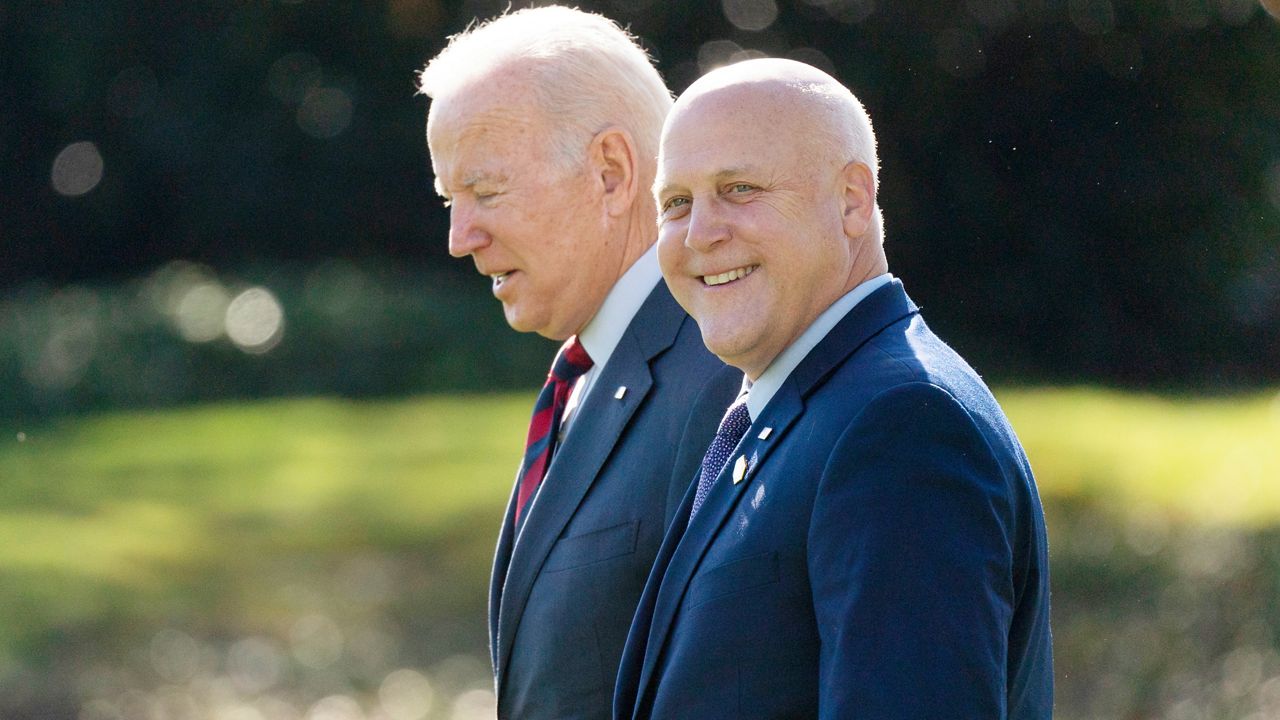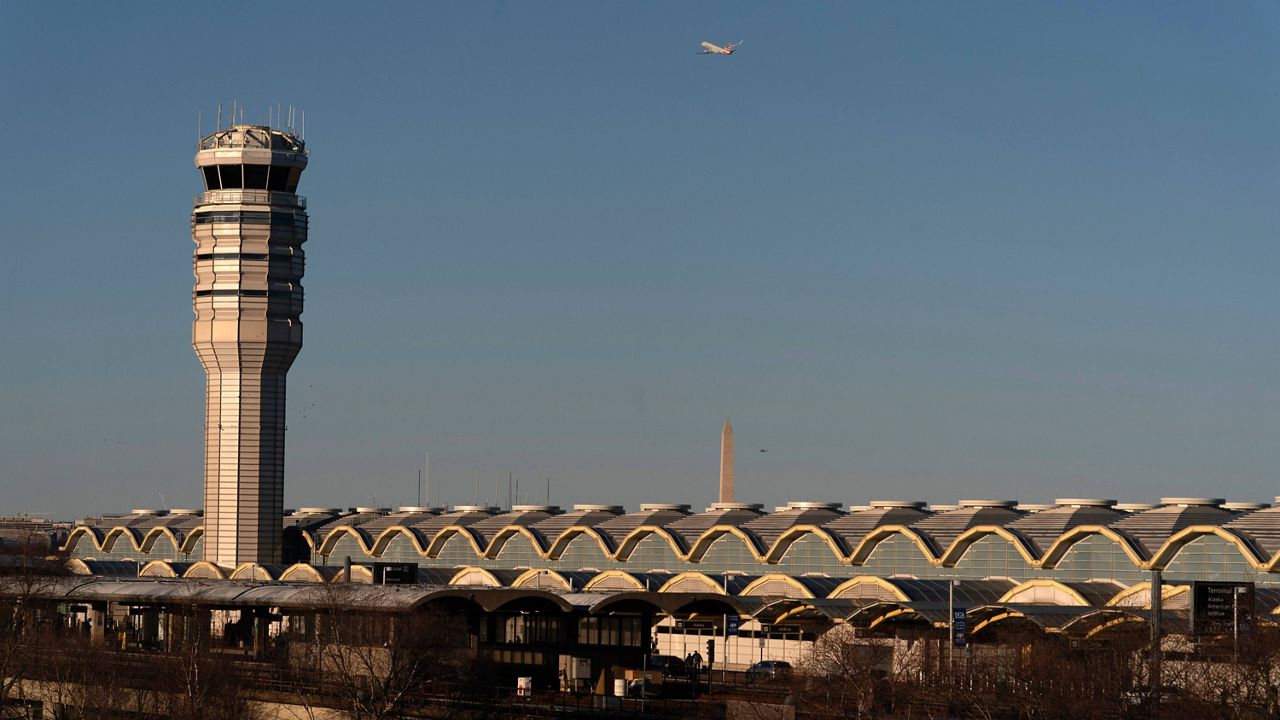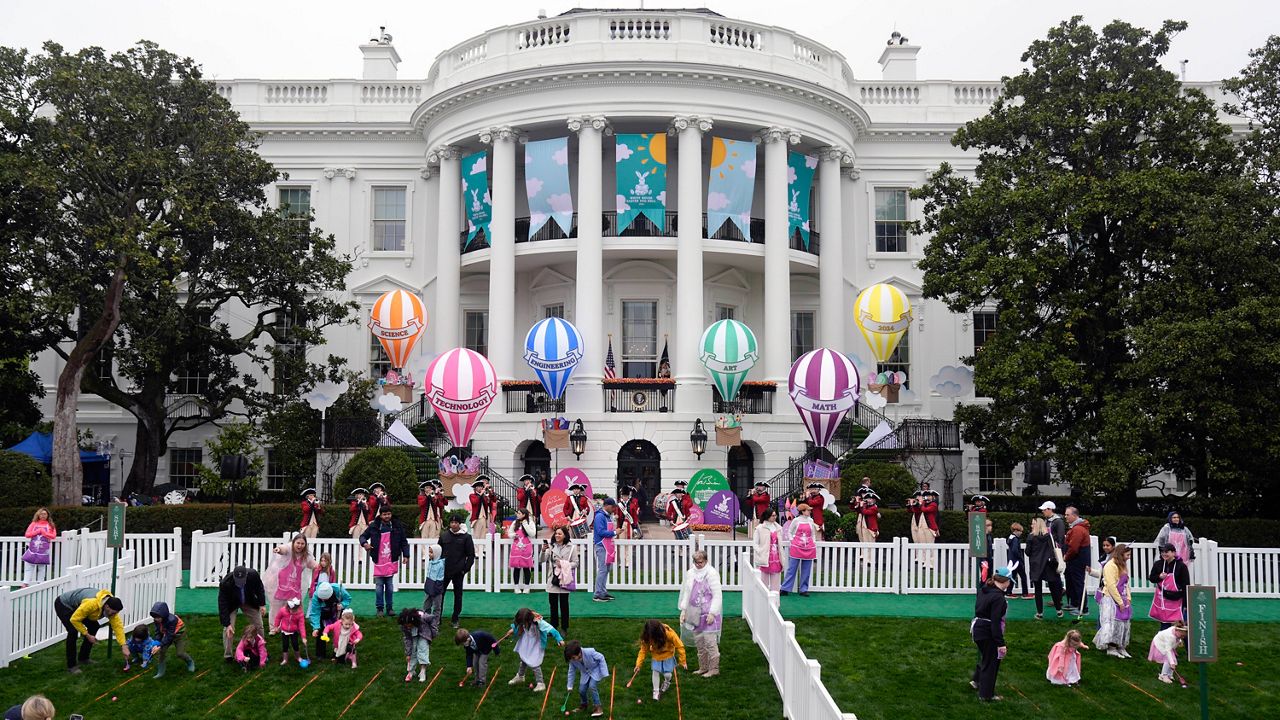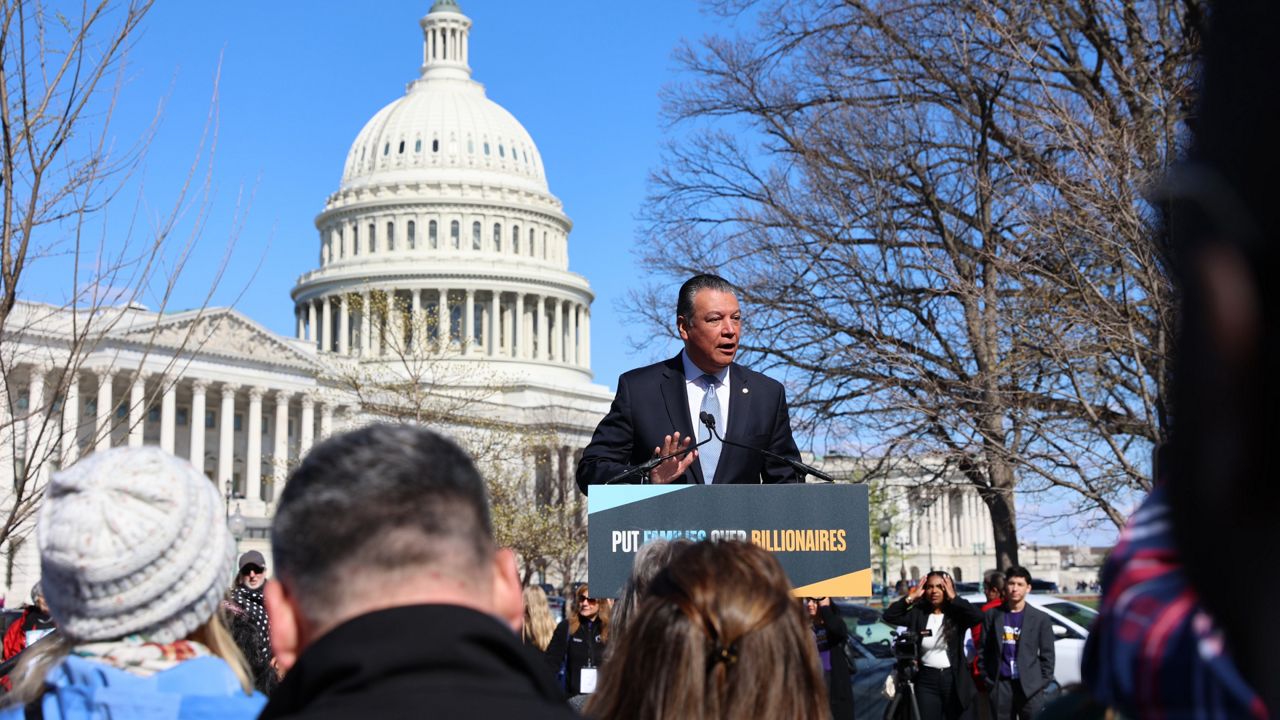Weeks after asking governors to name coordinators to help implement funding from the $1.2 trillion bipartisan infrastructure law at the state level, White House infrastructure coordinator Mitch Landrieu said they will soon ask mayors to do the same thing.
In an interview with Spectrum News on Thursday, Landrieu said that the White House is “about to send” a letter to mayors across the country “asking them to appoint an infrastructure coordinator so that they can communicate” with the administration in order to make sure funds are being distributed and spent in the right way.
In order for such a rollout to work nationwide, “and the only way that it can work,” Landrieu said, “is for everybody in the country to be ‘one team, one fight, one mission.'”
“And to make that happen, which is really hard to do, their governments on the federal, state and local levels have to be coordinated,” he added, emphasizing the need for agencies at every level work together “so that everybody is on the same page running the same play.”
Landrieu said his team is spending a lot of time working on “how to make government work better for the people,” noting that “it requires a huge effort.”
In a meeting with members of the Infrastructure Implementation Task Force on Thursday, President Joe Biden said that the law was evidence that Democrats and Republicans can get “can actually work together to get something done” — but also, importantly, “by implementing it efficiently and effectively, we're going to demonstrate that government also can work for people efficiently and effectively"
“In just two months, the investments are underway to modernize our roads, our bridges, our ports, our airports, our rail, delivering high-speed internet and clean water ... as well as strengthening the energy grid,” Biden said, adding: “Up until now, our nation has never fully made this kind of investment.”
Biden said that these improvements will be critical to improving supply chain issues nationwide, which have, in part, led to a rise in inflation.
"When we start moving stuff faster through our ports, when bridges don't have weight restrictions, when there's less traffic on our roads because there are more roads to travel on, and people aren't backed up bumper-to-bumper and more capacity in our rails, that's how we resolve the supply chain problem," Biden said. "And get goods to people, and get them to them quicker and cheaper."
“Detail matters,” Biden said of the infrastructure rollout. “Execution matters.”
It appears that Landrieu’s efforts to get states and cities to implement their own infrastructure coordinators is an attempt to do just that.
The effort follows the model of 2009’s American Reinvestment and Recovery Act, the stimulus bill following the 2007-08 economic collapse, which had recovery coordinators in each state, according to The Hill, which reviewed Landrieu’s letter to states.
“Given the success of this model and the highly integrated nature of the Bipartisan Infrastructure Law, I humbly request that you consider appointing a high-level person to serve as your state’s own Infrastructure Implementation Coordinator,” Landrieu wrote in his letter to governors.
New Mexico’s Democratic Gov. Michelle Lujan Grisham named three advisers in November to help coordinate such public works initiatives, including water and broadband projects. Arkansas Gov. Asa Hutchinson, a Republican, signed an executive order in December creating an Infrastructure Planning Advisory Committee “to identify best practices and procedures to ensure the State of Arkansas realizes the maximum relief and benefits available under the” infrastructure law.
Landrieu told Spectrum News that it’s “not just building a road, not just building a bridge, not just building a waterway, but building a place where all of those things hit the ground at the same time so that you can rebuild community.”
Using the example of small towns that have been economically devastated, the former New Orleans mayor said that their efforts are about “actually getting into those places and helping them figure out what their wastewater system looks like, what their transportation needs are.”
“One of the really critical things is to help build capacity on the ground, in communities that number one don't know how to apply for grants, and even if they got them wouldn't know how to use them,” he said, noting that bigger cities like New York, Los Angeles and Chicago know how to handle these funds and projects, but smaller ones might not.
“The president sees everybody, he wants everybody to be a part of this, whether Republican or Democrat, blue or red, whether they live urban or whether they live rural,” Landrieu said. “And this bill really connects all of America, which is what's so exciting about it.”








